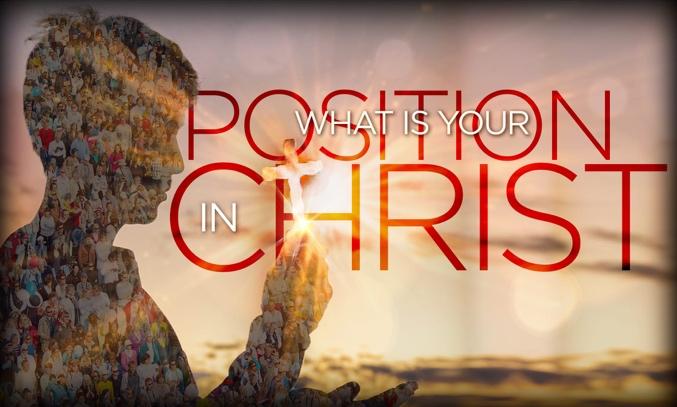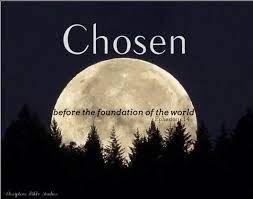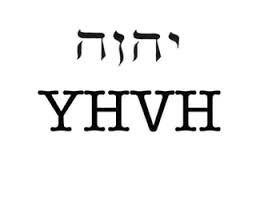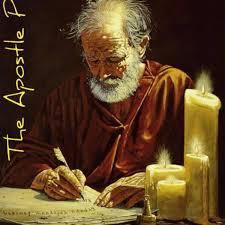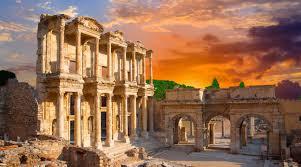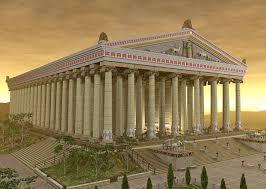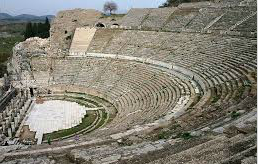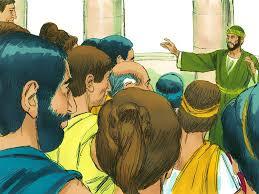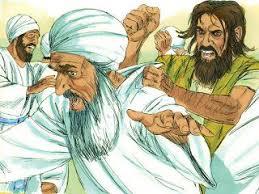Ax – Alive in Messiah 2: 4-5
Alive in Messiah
2: 4-5
Alive in Messiah DIG: In what sense is “spiritually dead” an accurate description of life without faith in Messiah? How does accepting Messiah signal a change in who has authority over you? What changes should occur in a person’s life as a result of this new allegiance? What changes have occurred in your life? What does it mean that you were “deserving of God’s wrath?” Why do you think believers sometimes perceive that their salvation relates to their own efforts? What does Paul have to say about that in vs 10?
REFLECT: How does the image of a prison cell describe your life before coming to Messiah? What would your life be like if ADONAI hadn’t extended mercy to you? When was the last time you had the opportunity to show mercy but didn’t. Why didn’t you? What is an act of mercy you have seen recently from another person? What is the danger of a faith based solely on works? How do you tell the difference between works-based faith and faith-based works? How can you show the great riches of God’s grace to others?
Our present position in Messiah.

Paul has laid the foundation for the new life and resurrection power that we receive when we come to faith in Messiah. Now he turns to discussing the actual transformation that takes place when we make this decision – how God brings us back to life from a place in which we were spiritually dead (to see link click Av – Salvation from Sin); raises us up, gives us power, and enables us to do good works for Him. In this way, Paul distills the relationship between our faith and Messiah, God’s grace to us, and the actions that should then flow out of our salvation.
But God, who is rich in mercy (not getting what we deserve), because of His great love that he had for us . . . (2:4) . There is no better soundbite of the Gospel than the first two words of verse 4. But God summarizes exactly what He has done in salvation as well as the great debt that we, as believers, owe Him. And the word “But” highlights the contrast between our plight and God’s provision. There was nothing that warranted this divine favor and blessing. While we don’t deserve it, we can’t deny that ADONAI extends His mercy, evidenced in the new life given and prompted by His great love.
. . . made us alive with Messiah even when we were dead in transgressions – it is by grace (getting what we don’t deserve) you have been saved (2:5 NIV). Having waited until verse 5 to write the main verb of the entire passage (see Aw – Our New Position in Messiah), Paul exploded with words of praise: God has made us alive in Messiah! This takes us to the book of Romans. Don’t you know that those of us who have been immersed into the Messiah Yeshua (by the Ruach Ha’Kodesh) have been immersed into His death? Through immersion into his death we were buried with Him; so that just as, through the glory of the Father, the Messiah was raised from the dead, likewise we too might live a new life (Romans 6:3-4). This newness of life is a new life given through our identification with Messiah in His resurrection. Our identification with Messiah in His death broke the power of our old sin nature (see the commentary on Romans Bm – The Consequences of Adam). And our identification with Him in His resurrection resulted in the impartation of eternal life (see the commentary on The Life of Christ Ms – The Eternal Security of the Believer). This is what Paul meant when he said: But God made us alive in Messiah.
As Paul explained: But when the kindness and love for mankind of God our Deliverer was revealed, he delivered us. It was not on the ground of any righteous deeds we had done, but on the ground of his own mercy. He did it by means of the mikveh of rebirth and the renewal brought about by the Ruach Ha’Kodesh, whom he poured out on us generously through Messiah, our Deliverer. He did it so that by his grace we might come to be considered righteous by God and become heirs, with the certain hope of eternal life (Titus 3:4-7).
As Yeshua explained to Nicodemus (see The Life of Christ Bv – Jesus Teaches Nicodemus), the kingdom of salvation cannot be earned through human effort or self-righteousness. Only those who are born from above can be saved. Even someone as highly respected and externally religious as Nicodemus – one of the most well-known Bible scholars in Isra’el – could not contribute anything to his salvation. From God’s perspective, the sinner’s best efforts are like filthy rags (Isaiah 84:6).
All the sinner can do is cry out to God for mercy, like the tax collector of Luke 18:13-14. He cannot save himself, so he must rest completely in the grace and compassion of the Savior. The promise of Scripture is that all who come to Messiah in genuine faith – turning from sin and turning to Him – will be saved (Romans 10:9-10). As the Lord Himself promised: Everyone the Father gives me will come to me, and whoever comes to me I will certainly not turn away (John 6:37).
The Spirit’s work of regeneration gives a sinner a new heart (Eze 36:26-27), one in which he is capable of genuine love for God and heartfelt obedience to Messiah (Jn 14:15). The fruit of that transformation will be evidenced in a changed life, manifest in fruits of repentance (Mt 3:8) and the fruit of the Spirit: love, joy, peace, patience, kindness, goodness, faithfulness, gentleness, and self-control (Galatians 5:22-23). Thus, Of His own will He brought us forth by the Word of Truth, that we might be a kind of firstfruits of His creatures (James 1:17-18). At the moment of salvation, God used His Word to convict our hearts and made us alive, such that we are now new creatures in Messiah (see Second Corinthians Bd – A New Creation).
The life that YHVH gives to us through Messiah provides us with purpose. As a “before and after” testimony to the power of the truth, our renewed life becomes the means by which the Lord’s redemptive mission is accomplished in this world. If Messiah’s only purpose in our salvation was to get us into heaven, it stands to reason that He would take us to be with Him at the moment of salvation. But He didn’t, leaving us here to witness to His mercy and love.
In an imperfect world, we tend to think our rewards are somehow connected to our performance. Those who don’t try or don’t work hard shouldn’t get the same benefits as those who try and work hard. But when we apply this thinking to a perfect God with absolute standards, our meager efforts don’t make the grade. Without God’s mercy and grace, we’re all stuck in imperfect. We’re stuck without hope. We’re just plain stuck. But God’s mercy comes and gets us unstuck. His mercy saves us through Yeshua Messiah. And since we continue to live in an imperfect world where we continue to experience falling short, God’s mercy continues to get us unstuck.
Dear Heavenly Father, You are so wonderful! Words cannot express the love and deep appreciation we have for You! You are so wise to use being united together with Messiah as the means to be able to raise me from death to life! Making known to us the mystery of his will, according to his purpose, which he set forth in Messiah as a plan for the fullness of time, to unite all things in him, things in heaven and things on earth. (Eph 1:9-10). Your purpose was always the same, from before the foundation of the world (Eph 1:4), Your plan was to unite “in Messiah” those who love You. United ”in Messiah” also provided the way for You to raise in victory all of Your family along with Messiah.
As Messiah rose victoriously from the dead, so also those united in Him will also rise victoriously from death to life! Or do you not know that all of us who were immersed into Messiah Yeshua were immersed into His death? Therefore we were buried together with Him through immersion into death – in order that just as Messiah was raised from the dead by the glory of the Father, so we too might walk in newness of life. For if we have become joined together in the likeness of His death, certainly we also will be joined together in His resurrection (Romans 6:3-5). It is a great joy and privilege to worship You, our Awesome and Mighty heavenly Father! In Messiah Yeshua’s holy Name and power of His resurrection Amen



